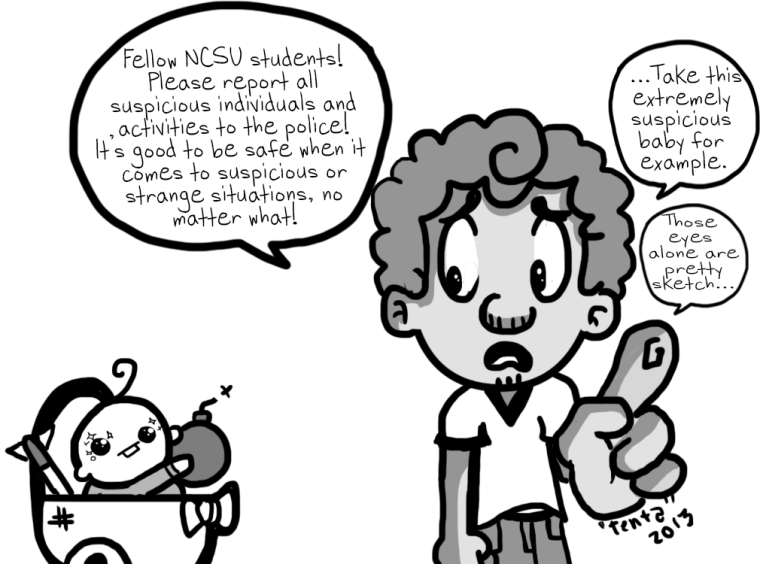At the University of Central Florida, a brave student saved several lives from an attempted mass shooting by doing one simple thing.
He called the police.
On March 19, Arabo Babakhani, a student at UCF, called 911 after his roommate, James Oliver Seevakumaran, pointed a loaded gun at him. Babakhani hid in the bathroom of his on-campus apartment and informed the police about his roommate who had a handgun, an assault rifle, high volume magazines and four homemade bombs, along with threatening letters about his intentions.
Seevakumaran pulled the fire alarm of the housing complex, a high-rise called Knights Plaza, which houses 2,000 students, and planned to open fire on the crowd that would have gathered during the routine response to such drills. In less than three minutes, the police were on the scene, and officers found that the to-be gunman, Seevakumaran, had shot and killed himself.
Dialing 911 during this incident seems like the natural and immediate thing one must do. Though some would consider Babakhani’s response to be unremarkably natural, his common sense spared the world another massacre of innocent people. Babakhani’s reaction has prompted the N.C. State Student Senate to propose a resolution to commend the UCF police and Babakhani, and based on the case, I had a long conversation between Director of Student Conduct Paul Cousins.
Cousins and I met last week to discuss the role bystander intervention played in this incident at UCF, and Cousins said something that stuck with me.
“It occurred to me that this is a disaster averted,” Cousins said. “I was hard-pressed to think about a situation that got much press ― and even this died down in the media ― that had gone right. What were the features present in that community that allowed that to work out in the best way possible for it?”
I’m not writing about this to stir up paranoia or to call for suspicious vigilance among students, but UCF and N.C. State share many things in common: Both universities are urban campuses, have large student bodies (UCF: 59,000, N.C. State: 34,000) and have a significant amount of students who live on campus.
“The circumstances that create some of those tragic situations could exist anywhere,” Cousins said. “No one is really immune to that anymore. We put a lot of energy into trying to develop prevention and preemptive strategies.”
The example at UCF is an extreme case in which bystander prevention works. But this shouldn’t be an example for the most radical of cases. As a student body, we can deter many crimes and offenses on our campus if we do the commonsensical thing and discern trouble, speak up and call 911. In the UCF case, all that responsibility was borne by one student.
“The reason this worked out well was because of that one guy,” Counsins said during our conversation. “When faced with a surreal situation, he managed to keep his wits and do the common sense thing to tell somebody. The biggest mistake people make is doing nothing and being complacent.”
N.C. State has about 50 sworn police officers. I have no doubt that these men and women are doing their best to ensure that our University is as safe as it can be. I have met Chief Jack Moorman of Campus Police several times ― some of those times talking about how to make the University safer ― and he has made an impression on me that his force is committed. If N.C. State has more than 34,000 students, who is more likely to see potentially hostile activity? Obviously, our police force has limitations, but as conscious community members, we can make its job easier.
The University has done a satisfactory job ― from my perspective ― of preparing officers, staff and students for emergencies like the one at UCF. In January, Campus Police, University Housing and University Communications simulated a drill of an on-campus shooting. Two weeks ago, Campus Police and the Women’s Center hosted “Take Back the Night,” an event to show support and awareness for those who have fallen victim to sexual assault and violence. These are good steps in educating our community about how to respond to relevant emergencies.
Cousins made an important point in our conversation when he asked how to foster a more compassionate community instead of a collection of “35,000 students who are essentially all about their own business.”
That’s a big question, but the more we consider it in our everyday actions, the closer to the answer we’ll get.




